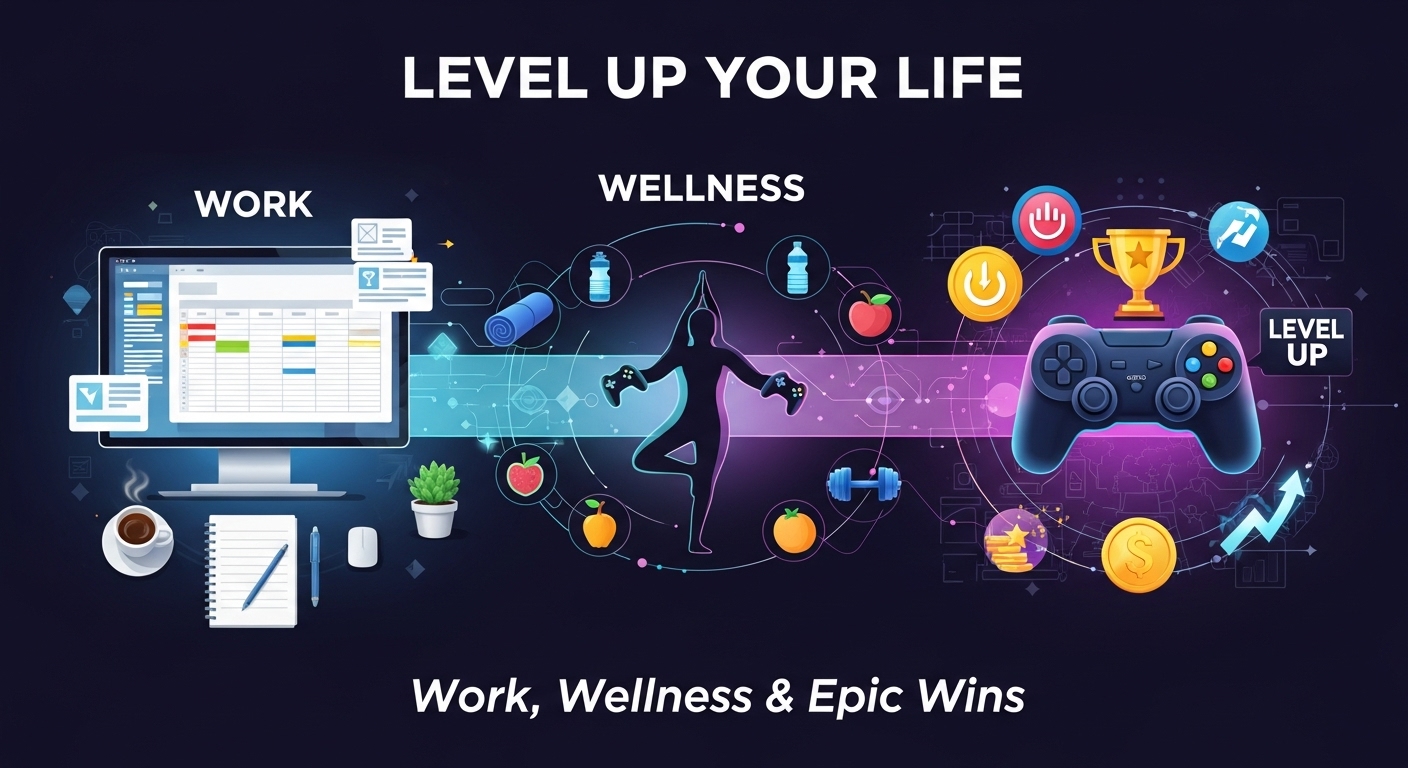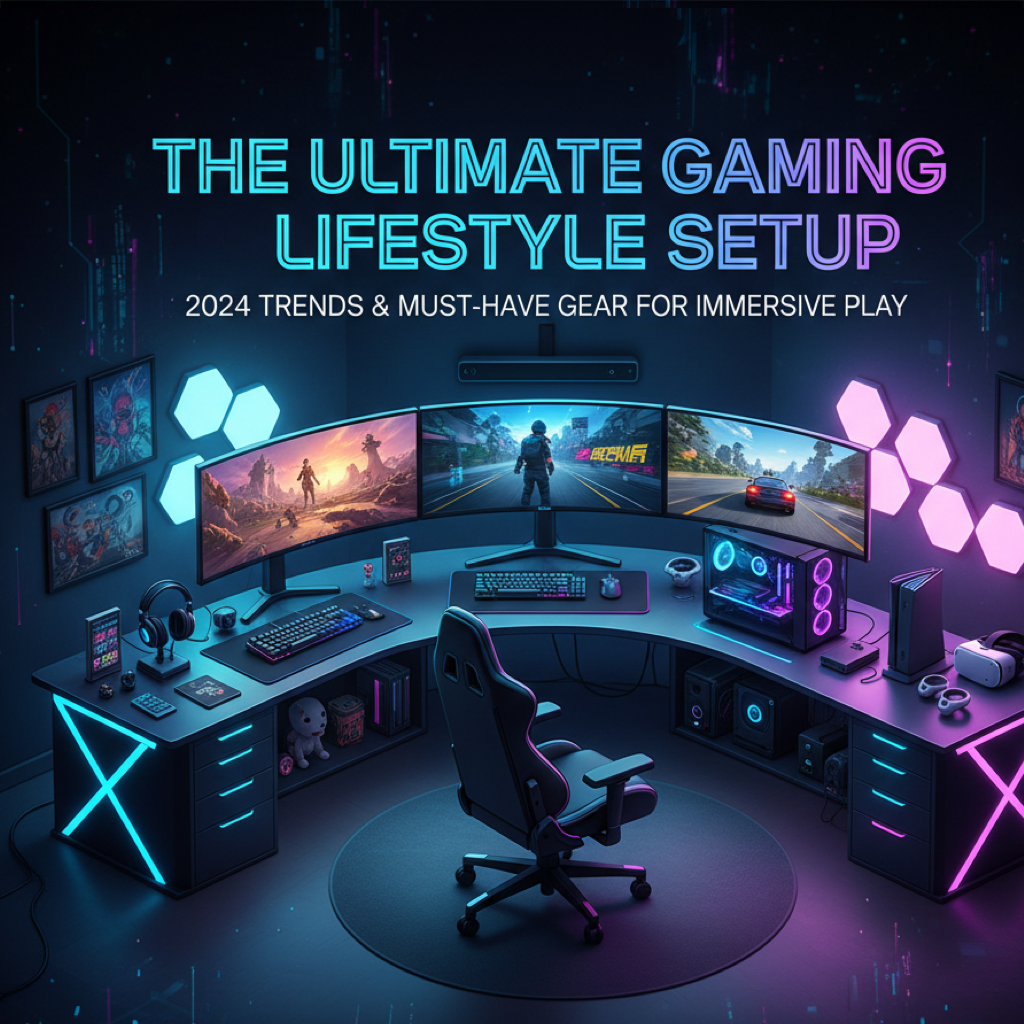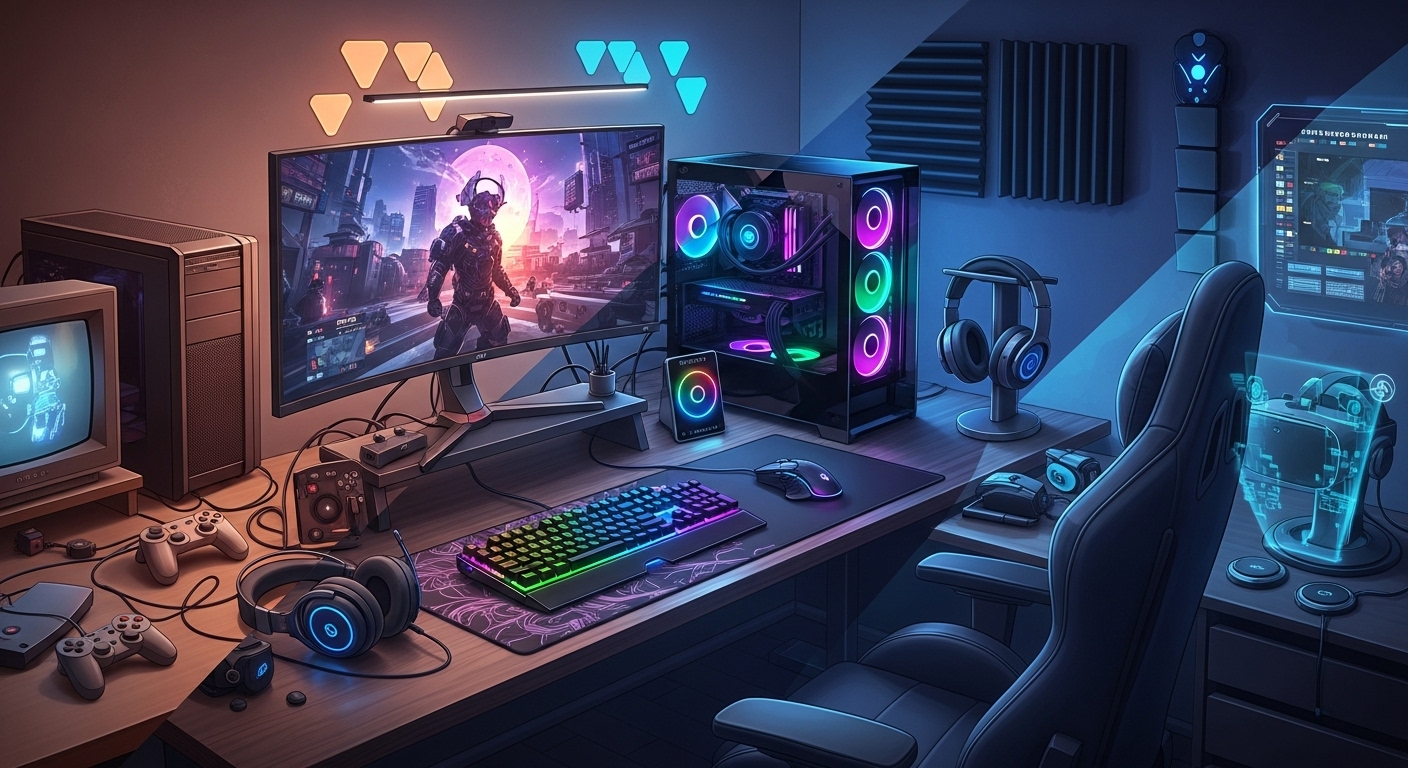The New Reality: Redefining the Gaming Lifestyle
Remember the old stereotype? The gamer, isolated in a dimly lit basement, surrounded by empty energy drink cans and pizza boxes. That image is as outdated as a dial-up modem. Today, the modern gamer is a professional, a student, a parent, a creator, and a high-achiever. Gaming is no longer just a hobby; for millions, it’s a core part of a vibrant and complex gaming lifestyle. It’s our social club, our competitive arena, our creative outlet, and our way to decompress after a long day of conquering real-world quests.
But with great passion comes great responsibility. How do you grind for that next promotion at work while also grinding for legendary loot? How do you maintain your physical and mental health when there’s a new raid boss to defeat? This is the ultimate challenge for the modern gamer: achieving a harmonious balance between the demands of your career, the necessity of wellness, and the pursuit of those epic in-game victories. It’s not about choosing one over the other; it’s about integrating them into a single, fulfilling life. This guide is your ultimate strategy walkthrough to help you spec your character—that’s you—for success in every arena.
Mission Critical: Conquering Your Career Quest
Many people see gaming as a distraction from professional responsibilities, but the opposite can be true. The skills you hone in-game are incredibly valuable in the workplace. The key is to manage your time effectively and leverage your unique gamer mindset to get ahead.
Time Management Strats: The Pomodoro & Time Blocking
Ever spent hours on a single quest, losing all track of time? That same focus can be a superpower at work, but it needs structure. Enter two powerful time management techniques:
- The Pomodoro Technique: Think of this as a work sprint. You work in a focused 25-minute interval (a “Pomodoro”), then take a 5-minute break. After four sprints, you take a longer 15-30 minute break. This method is perfect for gamers because it mirrors the rhythm of many games: short bursts of intense action followed by brief moments of recovery. Use your short breaks to stretch or grab water, and your long breaks to check your phone or do a quick daily login.
- Time Blocking: Look at your calendar as an inventory screen. You have a finite number of slots. Schedule everything—work projects, meetings, lunch, exercise, and yes, your gaming sessions. When you block out 8 PM to 10 PM for gaming, it becomes a legitimate, planned part of your day. This prevents it from bleeding into other responsibilities and helps you be fully present, whether you’re in a meeting or in a match.
Leveraging Gamer Skills in the Workplace
Don’t underestimate the professional value of your gaming experience. You’ve been training for the corporate world without even realizing it. Consider these transferable skills:
- Problem-Solving: Figuring out a complex boss mechanic or solving a tricky in-game puzzle requires critical thinking and trial-and-error. That’s the same logic you use to debug a spreadsheet or navigate a challenging project.
- Teamwork & Communication: Coordinating a five-person team in Valorant or leading a 20-person raid in World of Warcraft hones communication, leadership, and collaboration skills that are gold in any team environment. You know how to give clear, concise callouts and work towards a common goal under pressure.
- Adaptability: Game metas shift, patches introduce new challenges, and you constantly have to adapt your strategy. This resilience and ability to learn on the fly is a huge asset in today’s fast-paced work environments.
Setting Boundaries: When to Log Off Work and Log On to Play
The “always-on” work culture is a major boss battle. To protect your gaming time and your sanity, you need to set firm boundaries. When your workday is over, it’s over. Turn off work notifications on your phone. Avoid checking emails late at night. Creating this clear separation allows your brain to switch modes, so you can fully immerse yourself in your game without work-related stress creeping in. This isn’t just good for your gaming; it prevents burnout and makes you more effective when you are on the clock.
Health Bar Management: Prioritizing Physical & Mental Wellness
You wouldn’t go into a boss fight with a sliver of health, so why do it in real life? A healthy gaming lifestyle depends on taking care of your physical and mental well-being. Your performance, both in-game and out, relies on it.
The Ergonomics of an Epic Setup
Long gaming sessions can take a toll on your body. Investing in an ergonomic setup isn’t a luxury; it’s a critical part of long-term health. Focus on these key areas:
- Your Chair: Get a supportive chair that promotes good posture. Your feet should be flat on the floor, and your back should be supported.
- Desk & Monitor Height: The top of your monitor should be at or slightly below eye level. Your keyboard and mouse should be positioned so your elbows are at a 90-degree angle.
- Breaks & Stretches: Set a timer to get up and stretch every hour. Do some simple wrist, neck, and back stretches to prevent repetitive strain injuries.
Fueling Your Play: Nutrition for Gamers
Energy drinks and chips are the classic gamer fuel, but they lead to crashes and brain fog. To maintain focus and quick reflexes, you need high-quality fuel. Think of it as equipping the right consumables. Stay hydrated with water. Swap sugary snacks for nuts, fruits, or yogurt. A balanced diet with protein, complex carbs, and healthy fats will give you the sustained energy you need to clutch that 1v3 situation.
AFK Time: The Importance of Exercise and Sleep
Your body and mind need downtime to repair and recharge. Regular physical activity—even just a 30-minute walk each day—improves blood flow, reduces stress, and boosts cognitive function. And never, ever underestimate the power of sleep. A full 7-9 hours of sleep is the ultimate performance enhancer. It improves reaction time, decision-making, and emotional regulation. Sacrificing sleep for “one more game” is almost always a losing strategy in the long run.
Mental Health Buffs: Managing Tilt and Burnout
The mental side of gaming is just as important as the physical. Competitive games can be stressful, leading to frustration or “tilt.” When you feel yourself getting angry, take a break. Step away from the screen, take a few deep breaths, or do something else you enjoy. Remember, it’s a game. The goal is to have fun. If you’re feeling burnt out from a particular game, it’s okay to play something else or take a break from gaming altogether. Your hobbies should reduce stress, not add to it.
Social Quests: Nurturing Relationships In and Out of Game
Gaming is an incredibly social activity. For many of us, our closest friends are the ones we’ve met online. Maintaining these connections, as well as our real-life relationships, is a vital part of a balanced gaming lifestyle.
Building Your Online Guild and Community
The people you play with can make or break your experience. Seek out positive, supportive communities. A good guild or clan is about more than just winning; it’s about sharing experiences, offering support, and building lasting friendships. Don’t be afraid to leave toxic groups. Your gaming time is precious, so spend it with people who lift you up.
Syncing Up with Real-Life Friends and Family
It’s crucial to schedule dedicated time for the non-gamers in your life. Be present in those moments. Put your phone away during dinner. Plan activities that don’t involve a screen. A healthy balance means nurturing all your important relationships, not just the ones with a high K/D ratio.
Conclusion: Your Ultimate Achievement Unlocked
Balancing work, wellness, and gaming isn’t about finding a perfect, rigid formula. It’s a dynamic process, an ongoing quest of adjustments and optimization. It’s about recognizing that your passion for gaming can coexist with a successful career, a healthy body, and strong relationships. By implementing these strategies—managing your time like a pro, leveraging your gamer skills, prioritizing your health, and nurturing your social connections—you can stop seeing your life as a series of conflicting priorities. Instead, you can build a cohesive, rewarding gaming lifestyle where you’re not just winning in your favorite virtual world, but in the most important game of all: your life. Now go out there, apply these strats, and unlock your ultimate achievement.


